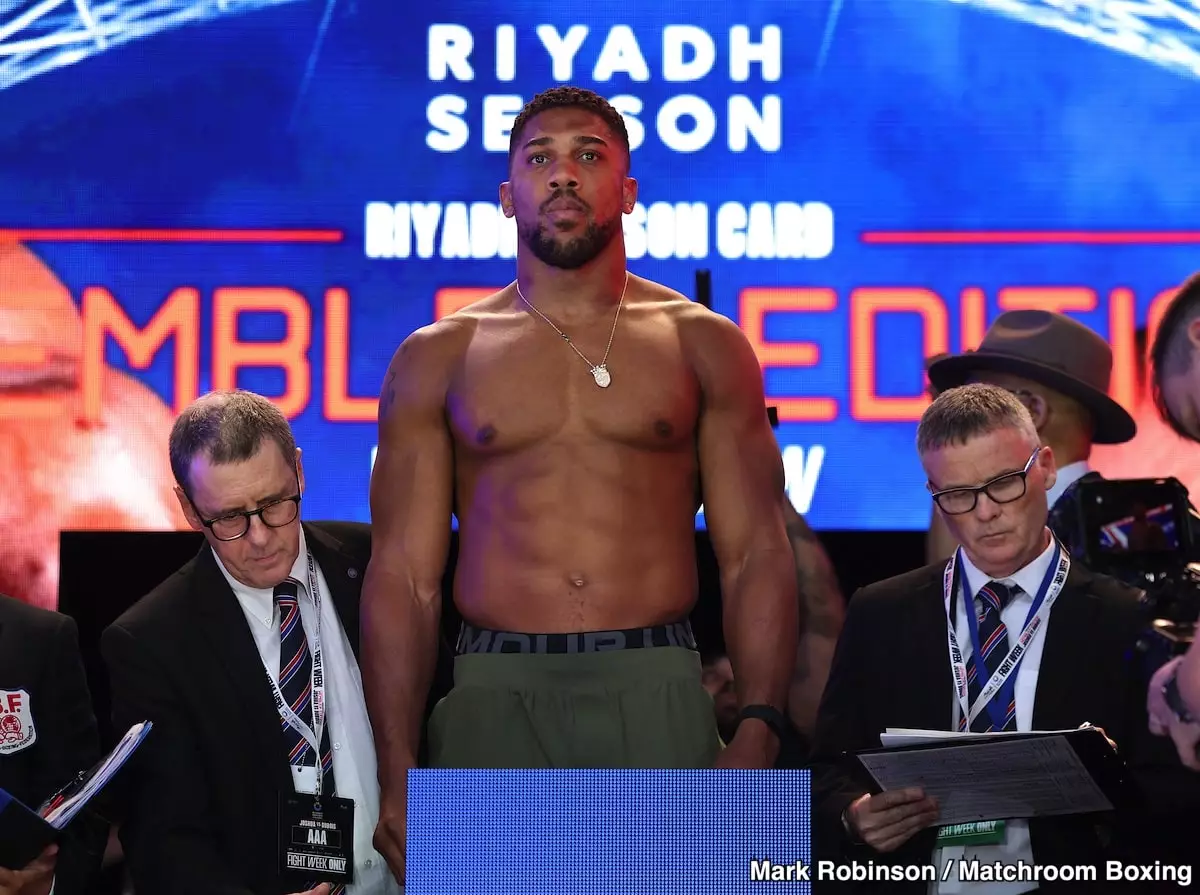In the realm of heavyweight boxing, few matchups have generated as much intrigue and controversy as the potential clash between Anthony Joshua and Tyson Fury. Promoter Eddie Hearn recently emphasized his commitment to making this much-anticipated fight happen by 2025, suggesting that he has a duty to deliver it to the British public. However, this assertion raises several questions about the current relevance of this bout, the motives behind Hearn’s push, and the future trajectories of both boxers.
The heavyweight boxing division has seen a surge of talent and competition in recent years, with rising stars like Daniel Dubois and established champions like Oleksandr Usyk shaking up the status quo. The landscape is rapidly evolving, and fans are increasingly skeptical about whether a Joshua-Fury clash still holds the same allure it once did. Joshua, with a record of 28 wins and 4 losses, including 25 knockouts, finds himself at a critical juncture. Concurrently, Fury, boasting a record of 34 wins, 2 losses, and 1 draw, recently faced a defeat against Usyk that could potentially reshape his career.
With both fighters emerging from different narratives—Joshua looking to regain lost glory and Fury seeking to rebound from a bitter loss—their paths seem to be converging. Hearn’s comments about needing to “deliver” this fight carry weight, yet they also beg the question of whether the excitement surrounding the event can still be captured or if the brief shelf life of such matchups has already expired.
Despite the lofty rhetoric surrounding the Joshua-Fury matchup, fan reception appears to be mixed at best. Many enthusiasts feel that the matchup may be past its prime, questioning whether it can deliver the same excitement that was anticipated years ago. Doubts have emerged regarding Hearn’s true motivations; the overwhelming belief is that financial implications drive his insistence on making this fight happen, rather than a genuine demand from fans.
Undoubtedly, there is a camp that would prefer to see Fury tested against Dubois, who could use a big-name win to solidify his status, while Joshua could potentially find a less risky opponent, such as Martin Bakole. Skeptics argue that putting Fury against Joshua at this stage is fraught with peril for both fighters and could easily lead to a result that sends Joshua into an early retirement.
Eddie Hearn is in a uniquely complex position as he aims to satisfy both fighters and their respective fan bases. His focus on Joshua’s social media activity indicates a need to provide reassurance and direction amidst uncertainty. Hearn’s assertion that Joshua appears eager for a bout against Fury highlights a nuanced truth: behind the scenes, managerial pressures and athlete aspirations are at odds with public perception.
His acknowledgment of the rematch with Dubois suggests a practical approach, recognizing that Joshua’s rebuilding phase necessitates a more strategic pathway. Hearn’s focus on the “Battle of Britain” running parallel to the possibility of Joshua securing a title shot raises further complexity—there is a delicate balance between delivering high-stakes fights and ensuring that they make sense within the context of their careers.
The aftermath of Fury’s loss to Usyk cannot be understated. A fighter’s emotional and psychological state post-defeat often shapes their decision-making for future fights. Fury’s sense of bitterness following the loss, coupled with his seemingly retreating from the public eye, suggests that his desire to compete may be clouded by doubt. His perspective on the fight reflects the intricate nature of competitive sports, where one’s self-perception can dramatically influence outcomes and motivations.
Hearn’s observations about Fury potentially being uninterested in returning to the ring illustrate an essential dynamic in heavyweight boxing: the fine line between a warrior’s spirit and the psychological toll of competition.
Ultimately, the future of a Joshua-Fury fight hangs in a delicate balance, subject to both the fighters’ performances and evolving public sentiment. While Hearn’s commitment to delivering this match signals its potential significance, the questions surrounding its timing, relevance, and financial motivations remain unresolved. With the heavyweight division in constant flux and new talents emerging, fans will continue to analyze whether a Joshua vs. Fury bout is truly a matter of importance or an overdue subplot in boxing’s rich narrative tapestry. The coming years will likely demand decisive action from all parties involved, ensuring that the story of this particular heavyweight saga remains engaging and relevant.

